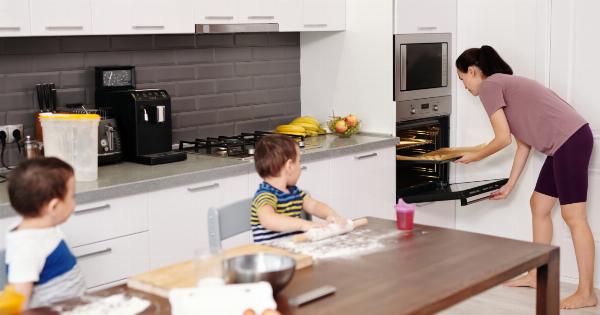Mealtime battles can be a common occurrence in many households with young children. It often starts with the refusal to eat certain foods or the demand for preferred options.
As frustrating as this may be for parents, it is essential to understand the significance of these battles and their impact on a child’s growth and development.
The Power Struggle
Mealtime battles typically arise from a power struggle between parents and children. It is during meals that parents try to assert their authority by ensuring their child eats a balanced diet.
On the other hand, children, who are developing their sense of independence, may resist these attempts as a way to assert their own control over the situation.
This power struggle can become a vicious cycle that negatively affects the child’s relationship with food and their overall development.
Nutritional Concerns
One of the primary concerns with mealtime battles is the impact on a child’s nutrition. A child who refuses to eat certain foods may miss out on essential nutrients necessary for their growth and development.
Consistently having an imbalanced diet can lead to vitamin and mineral deficiencies, weakened immune system, and impaired cognitive function.
It is crucial for parents to ensure their child receives a variety of foods that provide the necessary nutrients for their age and stage of development.
Emotional Well-being
Mealtime battles can have profound effects on a child’s emotional well-being. Constant battles, arguments, and frustrations during meals can create negative associations with food.
This may lead to disordered eating habits, such as emotional eating, binge eating, or even developing eating disorders.
Additionally, mealtime battles can create a stressful environment, leading to anxiety and emotional turmoil for both parents and children. This can have long-lasting effects on the child’s mental health and overall relationship with food.
Social Interaction and Communication Skills
Mealtime is also an opportunity for children to develop and practice their social interaction and communication skills. In a harmonious and supportive mealtime environment, children learn the art of conversation, taking turns, and active listening.
When mealtime becomes a battleground, these opportunities for social interaction and skill development are missed. Children may become more withdrawn, resistant to communicating, and may develop a dislike for sitting at the meal table altogether.
Eating Habits and Food Preferences
Mealtime battles often influence a child’s eating habits and food preferences. If a child is constantly forced to eat foods they dislike or engage in power struggles around mealtime, it can lead to aversions towards certain foods.
As a result, they may develop a limited palate or become resistant to trying new foods.
Creating a positive mealtime environment, free from battles, allows children the opportunity to explore different flavors and textures. This fosters a healthy relationship with food and encourages a more varied and balanced diet.
The Role of Parenting
Understanding the role of parenting in mealtime battles is essential in addressing these challenges effectively. Parents should consider the following strategies:.
1. Foster a Positive Mealtime Environment
Create an atmosphere that is calm, supportive, and enjoyable during meals. Avoid power struggles and unnecessary pressure related to eating.
Encourage conversation, storytelling, and sharing positive experiences to make mealtime more engaging and pleasant.
2. Introduce Choice and Independence
Allow children to have some control over their food choices. Offer a variety of healthy options and let them decide what they want to eat from the available choices. This gives them a sense of independence and helps reduce the power struggle.
3. Lead by Example
Show your child the importance of a balanced diet and healthy eating habits by leading by example. Eat meals together as a family, and let your child see you enjoying a variety of foods.
Children are more likely to mimic their parents’ behaviors and attitudes towards food.
4. Involve Children in Meal Planning and Preparation
Include your child in the meal planning and preparation process. Take them grocery shopping and teach them about different food groups.
Involving them in the kitchen can make them more interested and invested in the meals, leading to a greater willingness to try new foods.
5. Be Patient and Persistent
Changing eating habits and resolving mealtime battles takes time. Be patient with your child and continue offering a variety of foods. It may take several exposures before a child willingly tries a new food, so persistence is key.
Conclusion
Mealtime battles can significantly impact a child’s growth and development.
It is essential for parents to understand that these battles are often part of a power struggle and can lead to nutritional concerns, emotional turmoil, impaired social interaction skills, and limited food preferences. Fostering a positive mealtime environment, involving children in the food process, and leading by example are crucial strategies to address these challenges.
With patience, persistence, and a supportive approach, parents can help their child develop a healthy relationship with food and promote overall growth and development.






























